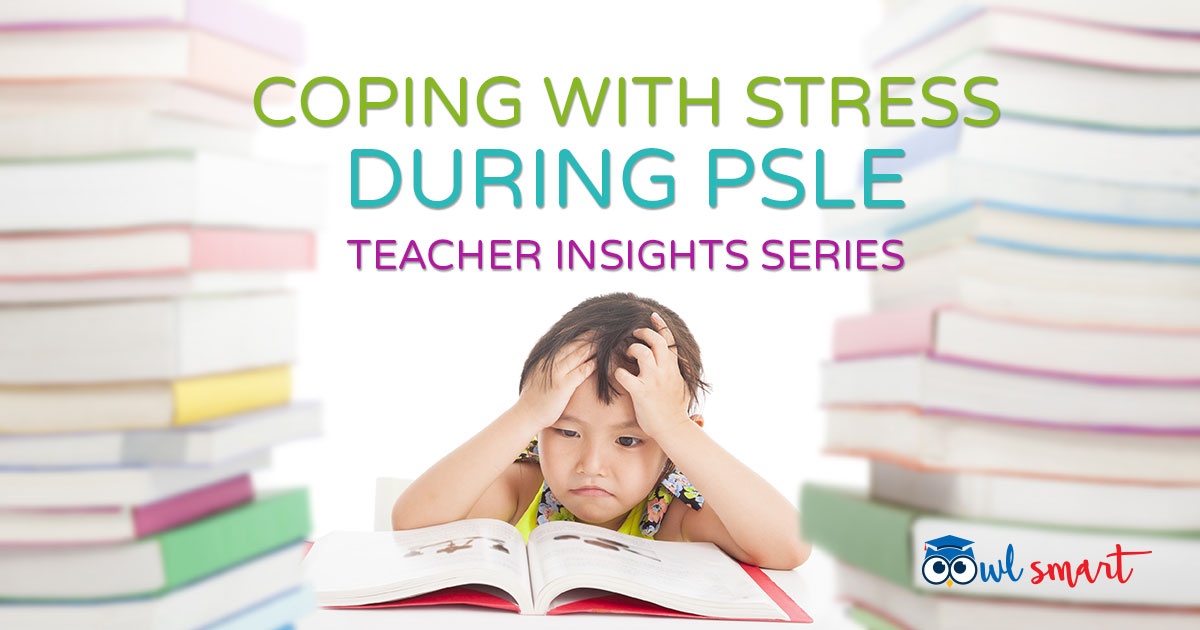
PSLE is tough nowadays and is definitely not like what we have gone through in the past twenty or thirty years ago.
Students nowadays need to have more analytical and application skills in order to cope with academic demands.
They face a lot of stress especially when it comes to the preparation for exams or coping with daily homework.
Let’s find out what our educators have to share about managing PSLE stress.

Question 5: How can I help my child cope with PSLE stress?
Teacher Chin
Co-setting and managing expectations are important in helping a child in coping with PSLE stress.
Parents should also put in place, a supportive and structured home environment that not only encourages but ensures that consistency and early completion of daily work are observed.
I believe consistency and accomplishment of daily tasks is a small but key ingredient in building resilience in children.
Acknowledgement is another crucial ingredient in letting the child know that he or she is not alone on their education journey.
However, I want to state that praises should not be excessive here lest they become the sole extrinsic motivators for your children.
Teacher Zen
I have done some researches and compiled a list of pointers to help your child cope with stress. Do check out our earlier article on Effective Management of Exam and Study Stress.
Basically, it is important to do some forms of exercise as exercising helps you to relax physically and emotionally.
Be encouraging to your child and not heap too much burden on him/her. I have a former student who used to do quite well for her studies.
Due to the great pressure placed on her by her parents, her results dropped drastically for SA2. I understand the stress and expectations of parents as I have a kid in primary school too.
I feel stressed too when I need to prepare my child for exam. However, we might need to let go “a bit” sometimes and not push our kids too much. A child’s emotional needs are important too.
Just to share a bit of my experience here. When I spend too much time working/typing in front of a screen, I get stressed easily too and my health suffers due to a sedentary lifestyle. Problems start to set in, blurry eyes, indigestion, lethargic, the feeling of being sick, etc.
When I start to do some forms of exercises like stretching and jogging, I feel better physically and emotionally. I can actually work and think faster too!
Likewise, when your kid is sitting down with his books in front of him, it does not mean that he is learning or absorbing what he is reading or doing. What really counts is not the number of hours spent but the quality of learning.
Is your child in a good condition to learn? Has his limit been exceeded? Talk to your child and plan his schedule accordingly. Ultimately, you know your child the best.
Conclusion
Parental support, management of expectations, consistency in revision and provision of a structure/conducive learning environment are keys to help your child cope with PSLE stress. Do not forget to include relaxations and exercises in your child’s study schedule.
About the Author
Prof Ollie is a guru of PSLE revision strategies specialising in the Leitner System and aims to help primary 6 students from all walks of life to excel in their PSLE. Despite being a professor, he wears his graduation hat wherever he goes. When not working on OwlSmart, Prof Ollie flies around Pulau Ubin to lose weight and catch up with the resident hornbills.



